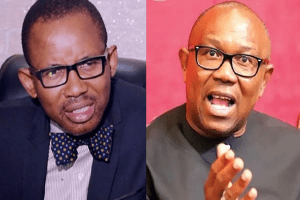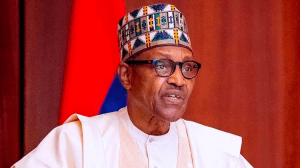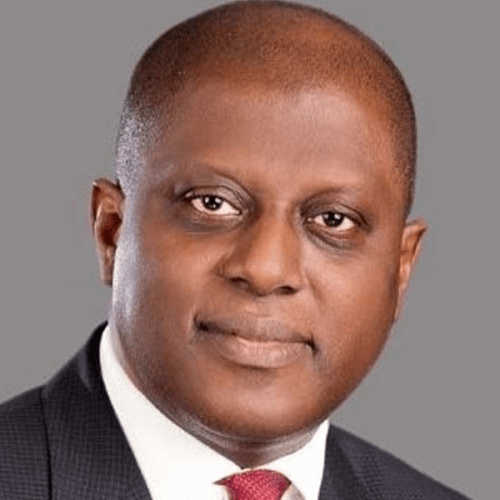By Kate Okorie, bird story agency
Up to 70% of Nigerians consume cassava on a daily basis. The farmers who bring this staple to Nigerian tables are increasing their earnings by selling the stems of improved cassava varieties.
On an unusually sunny day in October in Umudike, situated in the south-eastern state of Abia, the brilliant rays of the sun cast a glow on Samuel Ijebuonwu’s traditional Nigerian two-piece attire so that its vibrant blue hue matched the sky.
Squinting against the sun, Ijebuonwu followed a wide footpath flanking a large expanse of farmland. Then he made a right turn and disappeared behind a dense thicket of cassava plants.
Like many of his neighbours, Ijebuonwu has rented 1.5 hectares of land to grow his crops.
On this farmland, he cultivates high-yielding cassava plants purchased from a seed company that bears the same name – Umudike Seeds – as its host community.
Ijebuonwu has not always cultivated modified cassava varieties, nor produced cassava on such a large scale.
“I used to farm in small plots of land behind my house and rented farmlands,” he explained.

Back then, when the edible cassava tubers matured, he harvested them to feed his family of six and sold the small surplus. The stems were either replanted or left to rot on the farm; some were given to friends free of charge.
He repeated this cycle year after year, until 2019, when he was enlisted into the Umudike Cassava Seed Entrepreneurship Programme and discovered he could make additional income from the stems of the improved cassava varieties.
In the first year, his income grew by 10%, Ijebuonwu said.
So-called ‘cassava seed entrepreneurs’, like Ijebuonwu, sell cassava stems, also called seeds, to other local farmers within their communities to plant on their own fields.
An analysis of the profitability of commercial seed production among the top 50% of cassava seed entrepreneurs in southern Nigeria, including Abia State, revealed that stem sales accounted for approximately two-thirds of total revenue.
A bundle comprising fifty stems can cost up to US$1.5 for the enhanced cassava varieties.
“Sometimes you make more, sometimes less. It all depends on market demand,” Ijebuonwu explained, standing on a rectangular patch of fallow land that marked the boundary between his cassava farm and his neighbour’s.
He anticipated that his current cassava crop – which can take from six to 18 months to mature – would only be ready for harvest by August or September 2024. However, before that time, he planned to harvest the stems to sell to other farmers during the early planting season in May.
“That’s the business!” he exclaimed.
Ijebuonwu has yet to decide the selling price for the stems in his next harvest as he is still monitoring the market.
Another neighbour, Daniel Sunday, however, is more focused on expansion than selling stems.
Sunday joined the Cassava Entrepreneurship Programme four years ago. He had been cultivating cassava in his backyard until he got in touch with a team from Umudike Seeds. He jumped at the opportunity to expand production, he said.
“After my first harvest as a cassava seed entrepreneur, I replanted all the stems into my one-hectare farmland. The profits from selling the roots covered the production costs, so there was no need to sell the seeds,’ he explained.
He disclosed that he invested 290,000 naira (about US$373.8) and made approximately 480,000 naira (approximately US$616.7) after his harvest. Bolstered by the financial gain, he extended his farm to two hectares the following year.
He noted that his profit margin was higher than most farmers, due to the cassava breed that he cultivates requiring little maintenance to thrive, reducing his expenses on inorganic fertilisers.
While satisfied with selling harvested tubers, he also intends to sell some cassava stems in the next harvesting season, as a seed entrepreneur. Referrals from seed companies and research institutes, along with a surge in farming, means there is a constant demand.
“When farmers come to the institute to buy improved cassava seeds, we direct them to the seed entrepreneurs,” said Chiedozie Egesi, executive director of the National Root Crops Research Institute (NRCRI).
Umudike Seeds was established by the NRCRI in 2019 to bridge the gap in the seed value chain by promoting novel seed varieties developed in its labs.
To achieve this goal, Umudike Seeds partners with seed entrepreneurs to multiply and distribute improved seed breeds to farmers within their communities.
The sustainability of Umudike Seeds has been associated with its commercialisation of the formal seed system – a key component missing in earlier formal cassava breeding projects.
“Nigeria is the highest producer of cassava globally, but we have not been producing efficiently,” explained Egesi.
Data from the Food and Agriculture Organisation shows that Nigeria produced 63 million tonnes of cassava in 2021. However, the country’s productivity of 8.2 tonnes per hectare falls below the global average yield of 11.08 tonnes per hectare, a situation Egesi attributes to disruptions in the supply of enhanced seed varieties. He stated that Umudike Seeds has been able to partially address this situation through the Cassava Seed Entrepreneurship Programme.
In their position as middlemen, the cassava seed entrepreneurs have helped shorten the time it takes for improved seed varieties to reach local communities.
“In the past, the seeds could stay on the institute’s shelf for up to 20 years. By the time they got to the farmers, they were no longer relevant,” Egesi said.
While cassava is naturally drought resistant, some improved varieties are further enhanced for drought tolerance. Those seeds are tested at the institute’s station in Kano State, a drought-prone region in northern Nigeria.
“This process helps us understand how the seeds perform under minimal rainfall,” he explained.
To qualify as cassava seed entrepreneurs, farmers must hold a certification from the National Agricultural Seed Council (NASC).
“Before the cassava seed entrepreneurs are cleared to sell improved seeds, they are required to undergo three levels of inspection by the NASC at the pre-production, production and post-production stages,” said Peter Chukwu, production officer at Umudike Seeds.
The certification body checks for properties like seed purity, plant spacing, weed control and disease susceptibility.
Umudike also provides training and mentorship to the cassava seed entrepreneurs.
While the varietal grown by Samuel Ijebuonwu – the coveted TME 419 – is popular due to its high starch content, seed entrepreneurs still have difficulty convincing some farmers to purchase the stems from improved cassava varieties.
Uprooting a few cassava plants to reveal the tuber yield underground, Isaac Bosua, a commercial seed entrepreneur with 15 years of experience, showed how he employs a practical approach to win over sceptical farmers. Inviting them to his farm, he shows them the results first-hand.
Bosua said he does not miss his days growing local cassava varieties despite the additional effort needed to market cassava stems of the improved variety.
“The difference between then and now is just too clear,” he said.
/bird story agency























